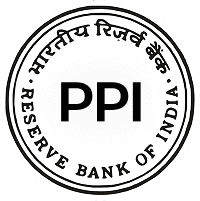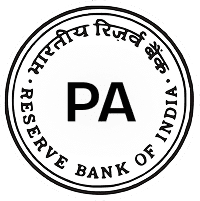Introduction
As India undergoes digital transformation, a secure and seamless financial infrastructure holds the key. NPCI is the focal point in this paradigm shift, working toward innovation and inclusion in India’s systems of payments. From enabling the launch of UPI and IMPS to bringing RuPay and Aadhaar-based solutions into being, NPCI has gone a long way in really modernizing financial transactions in India. This innovation, going toward corporate payments through platforms like EnKash, is only going to increase growth in the ecosystem. The blog covers NPCI from its creation, its role, its impacts, its major products, and what could be in store for the future of digital payments in India.
History and Establishment of NPCI
In a rapidly digitizing India, creating a secure and efficient payment infrastructure was crucial—and that’s where the National Payments Corporation of India (NPCI) stepped in.
Establishment of NPCI
The National Payments Corporation of India (NPCI) came into existence in 2008 under the aegis of the Reserve Bank of India and the Indian Banks Association. The objective was to create and protect a retail-oriented payment and settlement infrastructure useful for supporting the rapidly growing digital economy of India.
Ownership and Structure
NPCI is a not-for-profit company under Section 8 of the Companies Act, promoted by leading Indian banks under the guidance of RBI and IBA. Rather, it is promoted by the big banks in India, making it an NPO operating on a public-private partnership model. Hence, the structure assures that NPCI looks at public-good solutions rather than profit-driven solutions while making use of the knowledge and resources of private-sector banks.
Headquarters and Operational Reach
The headquarters of NPCI is located in Mumbai, Maharashtra, considered the financial epicenter of India. Thus, the organization works from this central location, interfacing with banks, fintech companies, and government agencies and collating operations from all over India. In due course, it has been able to increase the coverage area for services to the urban population as well as the rural population, always ensuring financial inclusion throughout India.
Contribution to Digital Payments
It has always been the NPCI that has been a driving force in digital payments in the country. With its revolutionary range of services-UPI, IMPS, RuPay Card, AePS, BBPS-it has literally rewritten digital payments for the layperson in India.
Vision and Impact
Indeed, financial inclusion and banking infrastructure development have been some areas where the NPCI has achieved some success. Presently, at an organizational level, the big vision is to accelerate digital payment adoption, support new technologies, and facilitate safe, fast, and cheap transactions across India.
Role of NPCI in India’s Banking System
In today’s ever-evolving world, where digitalization shapes life, uninterrupted and secure banking operations have become a necessity, and NPCI keeps ensuring that.
Central Role in Digital Banking
If you’re ever wondering what NPCI is in banking, it is because it sits at the center of India’s financial ecosystem. The NPCI is the national payment system backbone in India, with infrastructure for secure, speedy, and reliable digital transactions. It provides systems to banks, fintech, and other business entities so that payments can be processed speedily, with the end-user experiencing no hassles.
Enabling Real-Time Transfers
NPCI facilitates real-time money transfers from bank to bank through services like UPI and IMPS. It allows customers to transfer and receive money instantly, without lag times, making it the preferred option for money transfers in both personal and commercial transactions. ATM withdrawals, payment through cards, and payments through digital wallets are just a few of the many avenues supported by this uniform infrastructure setup provided by NPCI to make sure funds move seamlessly across different platforms.
Interoperability Across Banks
Interoperability is one great benefit of NPCI. This means a person, can make payments or transfer funds, is faced with ease of working with any bank, and accordingly, the transaction goes through smoothly. By linking several banks under one umbrella, NPCI obviates any hurdles and offers a uniform service throughout.
Supporting Fintech and Businesses
EnKash is an example platform that drives innovation in banking by providing corporate payment solutions so that transactions are automated, employee expenses are controlled, and integration is possible with the full digital payment ecosystem in India. Supporting fintechs, NPCI fosters innovation, brings in efficiency, and scales up the adoption of digital payments.
Promoting Financial Inclusion
By bringing in standardized yet accessible payment solutions, the NPCI association has greatly contributed to financial inclusion in India. Their systems are so designed that all sections of the populace, both urban and rural, are served, fostering secure banking for people from all socioeconomic segments.
Key Products of NPCI
Being introduced by NPCI, a plethora of products have brought a tremendous change to the country’s digital payment paradigm. These services facilitate making transactions faster, safer, and easier for citizens to businesses/government.
Unified Payments Interface (UPI)
One of the most commonly used products of NPCI is UPI, which stands for Unified Payments Interface. It facilitates fund transfer between banks instantly through mobile app interfaces. Being available 24/7, this interface also provides an easy-to-use and highly secure mode of paying or receiving funds. UPI has revolutionized the digital payment strategy of Indians with added features like QR code payments, split bills, and merchant transactions. Programs such as EnKash integrate UPI services to prepare real-time payment solutions for corporate users that are both efficient and reliable.
Immediate Payment Service (IMPS)
IMPS (Immediate Payment Service) is another core NPCI product designed to facilitate the instant transfer of money through other traditional messaging systems. The NPCI system allows transactions at all times, even on weekends and holidays, without any delay. IMPS is available across banks and mobile platforms, serving both urban and rural users. EnKash uses IMPS integration to ensure businesses can transfer funds instantly, streamlining payroll and vendor payments.
RuPay Cards
Developed by NPCI within India as an interbanking card scheme, RuPay has been positioned as a domestic alternative to global networks like Visa and MasterCard. The scheme proposes to offer debit, credit, and prepaid cards with its agenda of reduced cash dependency and easy payment modes for all income groups. RuPay has gained wide acceptance among merchants, banks, and consumers. Convenience is a mere aspect of the service. Corporate platform providers like EnKash also make use of RuPay in expense management and bulk disbursements.
Aadhaar Enabled Payment System (AePS)
On AePS, a person can carry out banking transactions using an Aadhaar number and biometric authentication. Using micro ATMs, users can withdraw cash, view balances, and transfer funds without physically setting up bank branches. Advertised as a means of financial inclusion, AePS tries to ensure digital banking in rural areas and far-flung locations.
Bharat Bill Payment System (BBPS)
BBPS is a centralized platform for utility bill payments, telecom, DTH, insurance, and miscellaneous services. A customer-friendly approach just facilitates setting standard modes of payment through BBPS so that customers can pay bills anytime, anywhere, securely, and conveniently. It makes payment of recurrent bills easy and functions smoothly with mobile and bank apps. Companies like EnKash integrate BBPS to allow corporate clients to make utility and service payments for their offices.
NPCI Other Products
Besides UPI, IMPS, RuPay, AePS, and BBPS, NPCI has come up with a lot of other products, such as e-RUPI, National Electronic Toll Collection (NETC), and Cheque Truncation System (CTS), that together fortify the digital financial space in India. These enable interoperability between banks, PISPs, and end users.
How NPCI Supports the National Payment System
In today’s fast-paced world driven by a digital economy, the ability to provide seamless and secure transactions has become of foremost importance. The National Payments Corporation of India (NPCI) ensures the continuous functioning of an inclusive and well-technologically advanced payment system in the country. Building a platform uniting banks, fintechs, and payment providers by NPCI allows for the free flow of financial transactions across India, making it convenient for individuals and businesses.
Unified Payment Infrastructure
National Payments Corporation is a key player in the process of supporting the country’s system of national payments by providing a unified infrastructure to banks, fintechs, and payment providers. NPCI sets the standard for digital transactions so that money can be transferred freely across banks and platforms. The initiatives of NPCI reciprocally reduce the dependency on cash and encourage payments to be digital first.
Bringing Financial Inclusion
NPCI tries to include small merchants, micro-businesses, and rural populations in the digital economy. A person may transact safely and securely outside of traditional banking channels using products such as AePS and UPI. Therefore, this democratized banking system promotes financial inclusion and allows more people to be part of India’s growth story.
Promoting Seamless Digital Payments
By connecting different banks, payment networks, and fintechs. Customers pay, fund, and pay bills without any type of bank-oriented interdiction. NPCI is at the center of this shift, driving innovation and financial inclusion in India’s payment systems. EnKash platform leverages NPCI’s national payment system by giving integrated services to businesses in payment to vendors, reimbursements, and payroll.
Increasing Economic Growth
The payment ecosystem created by NPCI is very strong and thereby capable of greatly contributing to the growth of the Indian economy. A fast, safe, and transparent mode of payment brings efficiency to trade, commerce, and government disbursements. In the meantime, digitizing payments lowers the costs of cash handling, reduces incidences of fraud, and promotes the formalization of the economy.
Facilitating Innovation and Adoption of Technology
NPCI continues with innovations, from e-RUPI vouchers to contactless payments and API-based integrations. Banks and fintechs like EnKash are encouraged by this to take up the latest technology, expand their services, and better the experience of their customers.
Impact on Businesses and Individuals
Payments for individuals should be faster, safer, and easier. For business purposes, there are tools to ease financial operations. Vendors and employees are paid, receivables are collected by electronic means, and NPCI products lend efficient, accurate, and transparent mechanisms to pursue that goal.
Benefits of NPCI for Individuals and Businesses
Convenience is just one of the many benefits of NPCI’s services; there are real benefits for an individual or business.
Speedy Transactions
One of the biggest advantages of NPCI is speed. UPI and IMPS are instant payment systems that allow real-time fund transfers between banks. They allow for the immediate transfer of funds between persons and businesses alike. Pay for your electricity bill; pay salaries; send some money to a relative. For NPCI, all activities must consume little time in payment efficiency. Businesses also gain from speedy payments, as vendors could get paid on time and refunds processed without undue delay. Similarly, EnKash leverages these services to give corporate clients immediate payout capabilities, thereby strengthening operational efficiency.
Security and Reliability
Security is the essence of all NPCI products. Strong frameworks and compliance standards ensure that transactions across banks happen securely, thus minimizing fraud. Whether it is an individual user or a big enterprise, NPCI makes sure financial operations happen securely and reliably. Businesses using EnKash for bulk transactions will have the added confidence that the infrastructure is built with very stringent security protocols.
Cost-Effective Payments
NPCI products come with profound cost benefits. Services, such as the association of RuPay cards and UPI transactions, cost less than their international counterparts. If the fees are negligible and the processing costs are a bare minimum, even a tiny merchant, startup, or even a budding conglomerate will all go for digital payments. A cheaper system promotes use.
Encouraging Financial Inclusion
Financial inclusion has a major role played by the NPCI. AePS and UPI services give rural users simple digital banking facilities so that even the remotest communities can take part in the digital economy of India. This has an incidentally empowering effect on an individual as well as on businesses, thus strengthening the financial ecosystem.
Benefits for Businesses
NPCI services offer several benefits to corporate users. While businesses are able to automate recurring payments, track vendor payments, reimburse employees, etc., platforms like EnKash that integrate these also offer organizations modern payment solutions that lead to fewer human errors and potential loss of time, and greater transparency of financial transactions.
Universal Access and Convenience
NPCI services are 24/7 accessible. Every day, small transactions, to be big bank-to-bank transfers by corporations, interoperability is working perfectly well for individuals and businesses across the country.
Future of NPCI and Digital Payments in India
As India progresses toward a cashless economy, the future of NPCI will define the future of digital payments
Expanding UPI Globally
NPCI wants to take UPI to a global standard. One of its major future goals is thereby the international expansion of UPI, which will allow Indian users and Indian businesses to make seamless cross-border payments.
Increasing RuPay Card Acceptance Worldwide
India’s domestic card scheme, RuPay, is set for global growth. NPCI intends to have RuPay cards accepted worldwide and facilitate easy and cost-effective operations for Indian travelers, businesses, and merchants. Existing platforms such as EnKash can be thoroughly integrated with the RuPay card for payments to the international vendors and any employee travel-related expenses.
Concern for Digital Security
Security enhancements remain a top priority for NPCI, using modern encryption, multi-factor authentication, and fraud detection systems to make secure transactions by users and businesses. More innovations are to come that will further mitigate the dangers in online financial operations.
Building New Digital Solutions
Some of the payment innovations offered by NPCI nowadays include e-RUPI. This system of digital coupons allows one to make cashless, contactless, and targeted payments for services such as healthcare, education, and welfare, thus simplifying government front-end disbursements, corporate incentives, and employee benefit schemes, offering a new financial management approach.
Enhancing Cross-Border Remittances
NPCI is streamlining international money transfers.
Simplified cross-border remittances will mean faster and cheaper payments for individuals and small corporates alike; this varies from small corporates paying foreign suppliers, international freelancers, and companies running operations overseas.
Driving India’s Cashless Economy
Digital payments have become synonymous with India’s economy. NPCI facilitates standardization, financial inclusion, and secure transactions. Such NPCI-enabled environments are being used by businesses, fintechs, and platforms like EnKash to further reduce costs, increase operational efficiency, and provide a better user experience.
Preparing for the Next Generation of Payments
With new technologies, NPCI is gearing up for the future. These initiatives include blockchain, fraud detection through AI, and real-time analytics, which would make, in all dimensions, transactions faster, more secure, and more comfortable for end-users, thereby ensuring that India is positioned as a frontrunner internationally in digital finance.
Conclusion
The National Payments Corporation of India is the driving force behind India’s digital payment revolution. Through products like UPI, RuPay, IMPS, and AePS, NPCI has transformed how individuals and businesses transact, making payments faster, safer, and more accessible. By supporting the national payment system and ensuring seamless interoperability across banks, it fosters financial inclusion and efficiency. Platforms like EnKash leverage NPCI services to provide smooth corporate payment solutions. Ultimately, NPCI has not only modernized banking but also paved the way for a fully digital economy in India.












